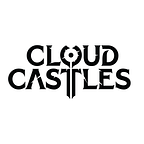Exploring the World of On-Chain Games: A New Era of Decentralized Gaming
The world of gaming has been rapidly evolving with the advent of blockchain technology, and fully on-chain gaming is at the forefront of this revolution.
This brand-new concept refers to video games that are entirely built and operated on a blockchain network, with all game assets, transactions, and data stored and processed on distributed ledgers.
In this article, we will delve into the concept of fully on-chain gaming, how it works, the relationship between it and cryptocurrency, the differences with the traditional gaming industry, and the advantages and benefits it brings for players.
With Cloud Castles, Digital Insight Games aims to leverage all these resources to deliver an amazing new experience to players in which they are in control of their assets and can interact with their peers in a frictionless, open market. We will continue to evaluate the development of on-chain gaming and incorporate blockchain elements where possible.
What Is On-Chain Gaming & How Does It Work?
Fully on-chain gaming represents a paradigm shift in the gaming industry, where games are developed, deployed, and operated entirely on a blockchain network. Unlike traditional video games that are centralized and rely on a central server for gameplay, fully on-chain games use smart contracts to execute game logic on the blockchain.
Blockchain is a decentralized and transparent ledger that records all transactions and changes to data, which is immutable and secured by cryptography. In fully on-chain games, all game assets, such as characters, items, and virtual currency, are represented as non-fungible tokens (NFTs) or digital tokens on the blockchain.
Players can interact with the game through their digital wallets and perform various actions, such as purchasing in-game assets, participating in game events, and making transactions with other players.
All these interactions are executed through smart contracts, which are self-executing contracts with predefined rules and conditions coded on the blockchain. In turn, these smart contracts ensure that game mechanics, interactions, and transactions are transparent, secure, and verifiable.
What Does Cryptocurrency Have to Do With It?
Cryptocurrency plays a crucial role in fully on-chain gaming as it serves as the native currency for all transactions and interactions within the game ecosystem.
Players can use cryptocurrency to purchase in-game assets — which are often represented as cryptocurrency or NFTs as well — participate in events or tournaments, and trade with other players.
Moreover, fully on-chain gaming provides players with the opportunity to earn cryptocurrency by leveraging their gaming skills and assets. Through play-to-earn models, players can earn cryptocurrency by playing the game and achieving specific goals or milestones.
The earned cryptocurrency can then be used to upgrade their in-game assets, trade with other players, or converted into fiat for real-world spending.
Advantages and Challenges of On-Chain Gaming
On-chain gaming is a revolutionary concept, and as such, it unlocks several advantages compared to traditional games.
One of the primary innovations of fully on-chain gaming is the high level of decentralization it offers. As games are built entirely on the blockchain, there is no central point of control, and players have complete ownership and control over their in-game assets.
This feature is impossible in traditional video games, where players are subject to the whims of game developers and publishers.
Another advantage of fully on-chain gaming is the use of non-fungible tokens (NFTs). NFTs are unique digital assets that can be used to represent in-game items, such as weapons, armor, and other items.
On-chain games also offer a high level of transparency and fairness because all game logic is executed on the blockchain. It is impossible for game developers to cheat or manipulate the game in any way. This is particularly appealing to gamers who are tired of the pay-to-win models that dominate the traditional gaming industry.
However, as advantageous as this new paradigm may be, it comes not without challenges.
Perhaps the most significant one is the limited scalability of blockchain networks. Currently, most blockchain networks can only handle a limited number of transactions per second, which can make fully on-chain games slow and unresponsive.
However, as blockchain technology continues to evolve, it is likely that these scalability issues will be addressed, making fully on-chain gaming a more viable option in the future.
Can On-Chain Gaming Be the Future?
On-chain gaming represents a new era of decentralized and player-centric gaming experiences.
With the integration of blockchain technology, smart contracts, and cryptocurrency, players now have true ownership of their virtual assets, can participate in player-driven economies, and enjoy transparent and secure transactions.
These advantages provide players with increased autonomy, creativity, and potential for earning real-world value from their in-game assets.
As these technologies continue to evolve, the future of gaming looks promising, with on-chain gaming poised to revolutionize the traditional gaming industry and create new opportunities for players worldwide.
With Cloud Castles, Digital Insight Games aims to leverage all these resources to deliver an amazing new experience to players in which they are in control of their assets and can interact with their peers in a frictionless, open market. We will continue to evaluate the development of on-chain gaming.
Join our community to stay up to date on everything Cloud Castles:
- Twitter: https://twitter.com/cloudcastlesgg
- Discord: https://discord.gg/cloudcastlesgg
- Youtube: https://www.youtube.com/@cloudcastlesgg
- Website: https://www.cloudcastles.gg/
